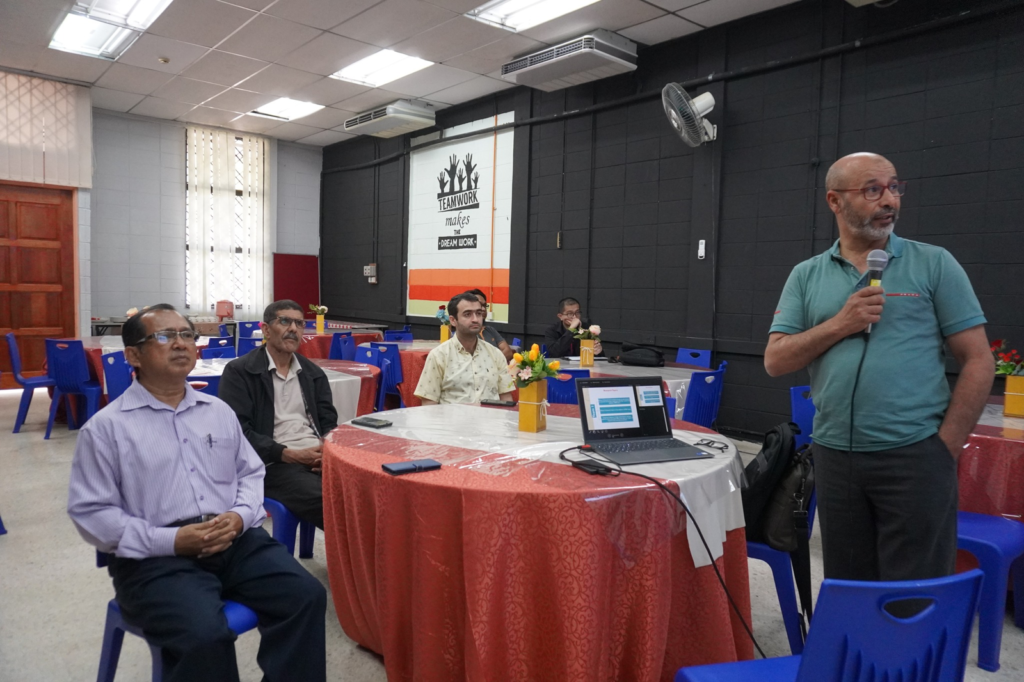Colloquium on Computational Hydraulic and Hydrology, featuring distinguished professors Prof. Djehiche Abdelkader and Prof. Gafsi Mustafa from Université Amar Telidji Laghouat, Algeria. The event took place as scheduled on 16 May 2023, from 9:30 am to 12:00 pm, in Bilik Jamuan, D02, Faculty of Civil Engineering, Universiti Teknologi Malaysia.
Event Overview: The Colloquium on Computational Hydraulic and Hydrology aimed to foster knowledge exchange and collaboration among faculty and students interested in the field. The event provided a platform for our esteemed guests to share their expertise, insights, and latest research findings in computational hydraulic and hydrology. The colloquium was met with enthusiastic participation, with both faculty members and students actively engaging in the discussions.
Distinguished Speakers: Prof. Djehiche Abdelkader and Prof. Gafsi Mustafa, renowned experts in computational hydraulic and hydrology, delivered captivating presentations that captivated the audience’s attention. Prof. Djehiche Abdelkader delved into the numerical simulation of fluid flow, while Prof. Gafsi Mustafa explored optimization techniques applied to hydraulic systems and groundwater resource modeling. Their lectures were informative, insightful, and thought-provoking, shedding light on cutting-edge advancements and challenges in the field.


Engaging Discussions: The presentations were followed by a dynamic Q&A session, during which faculty members and students actively posed questions, seeking clarification and additional insights on various aspects of computational hydraulic and hydrology. The discussions were marked by a vibrant exchange of ideas, with our guests providing detailed responses and fostering a stimulating atmosphere for intellectual discourse.
Audience Engagement: The colloquium saw a diverse audience, including faculty members and students from various departments within our institution. The attendees demonstrated keen interest and active participation, showcasing the relevance and significance of computational hydraulic and hydrology across different disciplines.
Key Takeaways: The event facilitated a cross-pollination of knowledge and perspectives, allowing attendees to glean insights into the latest trends, methodologies, and challenges in the field. Prof. Djehiche Abdelkader and Prof. Gafsi Mustafa’s expertise provided valuable learning opportunities, inspiring attendees to explore new avenues of research and innovation.
Conclusion: The Colloquium on Computational Hydraulic and Hydrology, featuring Prof. Djehiche Abdelkader and Prof. Gafsi Mustafa, proved to be a resounding success. The event not only enriched our understanding of the subject matter but also reinforced the importance of academic collaboration and the exchange of ideas.
We extend our heartfelt gratitude to Prof. Djehiche Abdelkader and Prof. Gafsi Mustafa for their illuminating presentations and their gracious presence. We also express our appreciation to all attendees who contributed to the event’s success through their active participation.
We look forward to continuing our pursuit of knowledge and exploration in the realm of computational hydraulic and hydrology, fueled by the insights gained from this enlightening colloquium.

